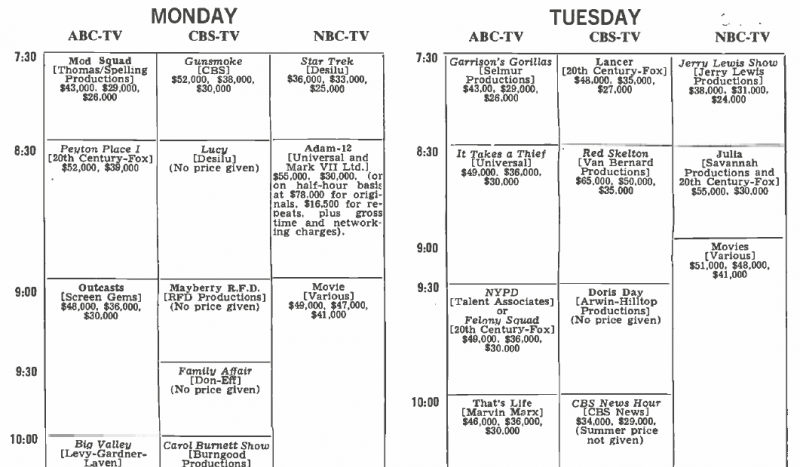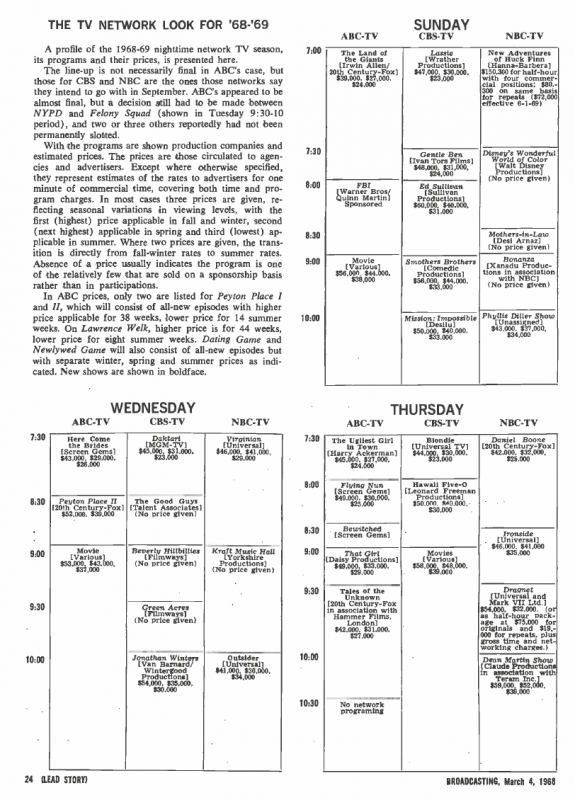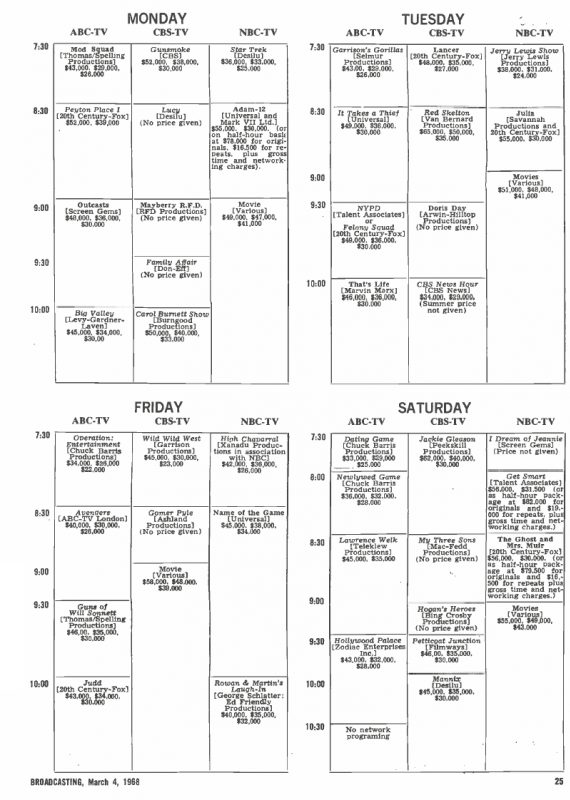Allow me to clarify/elaborate on my earlier post. Postulating a six year run for the original series, around the fifth year actor costs would begin to escalate. Network brass would conclude that they could keep the brand going if they launching a spin-off with a new cast. Such a spin-off would undoubtedly be set in the same timeframe because that would make more sense economically as props (phasers, communicators, etc.) could just be moved over. After six years of TOS and five of "Star Trek: Deep Space K8" or "Star Trek: Mariner" that would be ten years (assuming one year of overlap).
It's hard for me to see that happening in the 1970s. As I said, before TNG, science fiction was never popular or profitable enough in the US to last longer than five seasons at the outside. I think that once Paramount got TOS past 100 episodes and felt secure in the show's syndication potential, it would've had to be exceptionally successful and/or critically acclaimed in order for NBC and Paramount to consider it worthwhile to continue the show.
If there had been a spinoff, it might've been something like
Assignment: Earth, a present-day, Earth-based series to save costs. You didn't see a lot of deep-space shows in the early '70s -- aside from TAS itself, there was basically just
The Starlost and
Space: 1999, with most of the space shows coming late in the decade in the wake of
Star Wars --
Space Academy/Jason of Star Command, Quark, Battlestar Galactica, Buck Rogers, and
Blake's 7 in the UK. The bulk of the genre shows in the first half of the decade were Earthbound things like the bionic shows,
Planet of the Apes, Ark II, and
UFO in the UK (okay, that was partly set in near space, but still centered on the Earth/Moon system). And Roddenberry's pilots in that era were Earthbound too --
Genesis II, Planet Earth, The Questor Tapes, Spectre. If he'd been asked to do a Trek spinoff, it might well have been a version of
Genesis II that was set in the Trek universe's past after the Eugenics Wars/WWIII (which were implicitly the same thing until TNG retconned the time frame of the latter) and showed the beginning of Earth's rebuilding into the utopia it became in Kirk's time.
And once more, it's worth keeping in mind that the animated series
was a spinoff/continuation of the original, debuting only four years after the original ended. Moving the show to animation was how NBC chose to revive/continue it while making it less expensive. Let's remember how popular the show was among children in its original run. NBC may have felt they were the prime target audience for ST, and that they'd respond as well to an animated show as a live-action one (although TAS was made with the hope that it would draw adults too). And keep in mind that Filmation was in talks about doing an animated spinoff even while the original series was still in production -- the idea being to focus on a young cadet crew that had Kirk, Spock, and the others as their mentors, and have their adventures run in parallel with the live-action show. Those plans were abandoned when TOS was cancelled. So if TOS had continued, it's highly possible that its first spinoff would've been in animated form.



